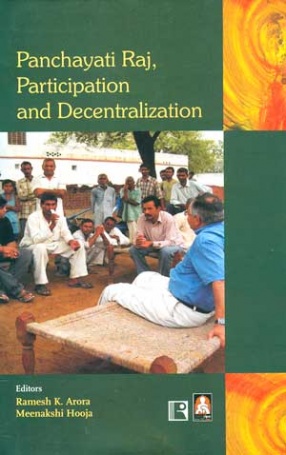Perhaps the most significant characteristic of India's parliamentary democracy is its vigorous grassroots structure. Local level participatory and democratic institutions, sprawling throughout the country, have not only brought authenticity to the democratic spirit, but have also made the whole process of governance increasingly effective and responsive. More particularly, after the 73rd and 74th amendments to the Indian Constitution, the decentralized governance framework has introduced a new dynamism into the overall process of participatory democracy. Even thought the constitutional amendments have not been implemented in totality, yet the process of democratization has become irreversible and it can be hoped, that in years to come, India could boast of a vibrant responsible democracy, the tentacles of which would reach every community, group and territory of the country.
The present anthology discusses some of the most significant and critical issues pertaining to the impact of Panchayati Raj Institutions, the framework of participatory democracy and the design of decentralized governance in India. Throughout the volume, the emphasis is on highlighting some of the more prominent features of Inida's participatory democracy and on a few noticeable lacunae that need to be overcome through institutional devices. The volume is descriptive, empirical and instrumental in its perspective and will be of enormous utility to students, teachers and policy-makers interested in the crucial problem areas of governance at the grass-roots level.











There are no reviews yet.